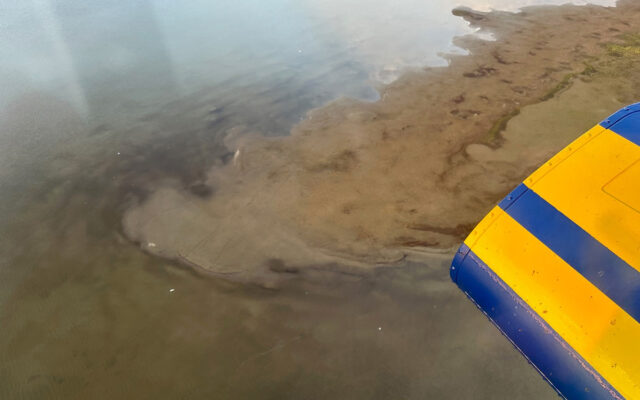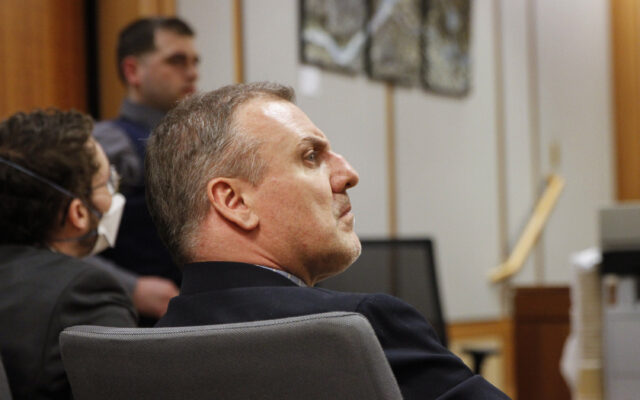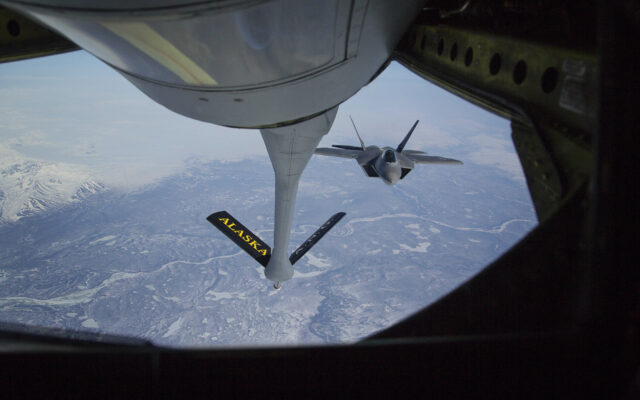Federal report sheds new light on Alaska helicopter crash that killed 3 scientists, pilot

ANCHORAGE, Alaska (AP) — A helicopter that crashed on Alaska’s remote and vast North Slope in July, killing three state scientists and the pilot, stopped sending flight-status data to a real-time tracking system as it passed over the southeastern shoreline of an Arctic lake, according to a preliminary report on the crash released Tuesday.
The Bell 206L-4 helicopter was later found fragmented and partially submerged in Lake Itinik, a large oval-shaped body of water that measures 3 miles (4.83 kilometers) wide in some places, according to the report from the National Transportation Safety Board.
There was no indication in the report of what caused the helicopter to crash into the lake in clear conditions. The cause typically is detailed months later when federal investigators file their final report.
The last of the helicopter’s data transmissions sent every three minutes indicated it was traveling in a northwesterly direction at an altitude of 144 feet (43.89 meters) above mean sea level at 107 mph (172 kph), the report said.
The terrain around the lake is flat, featureless Arctic tundra. The report said the lake is reported to be at 56 feet (17.07 meters) above sea level.
The July 20 crash claimed the lives of a pilot and three scientists with Alaska’s Department of Natural Resources, working in the Division of Geological & Geophysical Surveys. The helicopter is owned and operated by Maritime Helicopters of Homer, Alaska. It was under contract to take scientific crews to various remote locations on the North Slope so they could conduct field work.
Killed in the crash were noted permafrost expert Ronald Daanen, 51, a native of the Netherlands living in Fairbanks; Justin Germann, 27, a native of North Dakota also living in Fairbanks; recent University of Indiana graduate Tori Moore, 26, of South Bend, Indiana; and pilot Bernard “Tony” Higdon, 48, of North Pole, Alaska. Both the chartered helicopter and state employees were based in Utqiagvik, the nation’s northernmost community formerly known as Barrow, for the duration of the contract.
On the day of the fatal crash, the helicopter and crew departed Utqiagvik just after 10 a.m. Their route was flying about 60 miles (96.56 kilometers) south for a brief stop at the Atqasuk, Alaska, airport, and then continuing on to conduct field work at remote sites east of the community of Wainwright. The report says the crash occurred about an hour after they left Utqiagvik.
When the helicopter did not return to Utqiagvik that night as planned, the North Slope Search and Rescue team launched in a Sikorsky S-92 helicopter to search for the missing aircraft.
The wreckage was found about 3:15 a.m., July 21, in the shallow waters of the lake, located about 30 miles (48.28 kilometers) east of Wainwright, the report said. The bodies were removed July 23.
The wreckage was recovered from the lake on July 30 and taken by helicopter to Utqiagvik for examination. It was later taken to Anchorage, where further examinations are pending.
You Might Also Like



